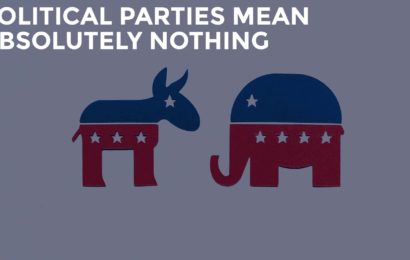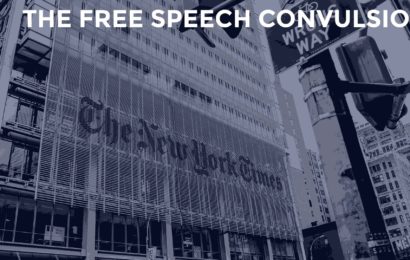
WWE and the Saudi Government
When it comes to their business relationship in Saudi Arabia, the WWE wants to have their cake and eat it too. Vince McMahon began his courtship with the Saudi government by promoting house shows in Jeddah in 2014. These shows were meant to test the appetite for professional wrestling among the public. After generating enough interest, the WWE and the Saudi General Sports Authority (SGSA) announced the first live PPV event, The Greatest Royal Rumble, to be held in the King Abdullah International Stadium in 2018. The event was to be the first in a mutually beneficial, 10-year partnership deal. The WWE has faced much criticism from not only politicians, activists, and the international business community, but even from their own performers, many of whom refuse to participate at all.
The shows themselves are sub-par, even compared to the ever-declining quality of WWE shows in general. The wrestling is of standard fare, nothing spectacular, and mostly insulated from any overall storylines. Younger talent is pushed aside to make room for aging performers from bygone eras, which was a contingency insisted upon by the SGSA because it’s whom their audience is most familiar with (it’s still difficult to watch new WWE content in Saudi Arabia). 2019’s Super Showdown PPV featured a match between the Undertaker and Goldberg that 20 years ago, could have been the biggest Wrestlemania main event in history. What we got instead was a sloppy bout filled with botched spots between two wrestlers whose best years are long behind them. Even worse than that was the dreadful tag team match that pitted the Brothers of Destruction (Undertaker and Kane) against DX (Triple H and Shawn Michaels) at the Crown Jewel PPV in 2018. All four wrestlers are over 50 years old with a collective 117 years of in-ring experience. Call wrestling fake/scripted all you want, but no one can argue that it doesn’t enact a huge toll on the body. All the injuries, bumps, table spots, and chair shots each has sustained over their long careers definitely showed in that match (Triple H suffered a torn pectoral halfway through). While it’s fair to assume that any aging wrestler chooses to perform of their own volition, the WWE has a long history of keeping older talent, far past their prime, at the top of the card because of backstage politics or the idea that fresh faces won’t pull in viewers.
The WWE has also had to acquiesce to the cultural standards of the country. Even though they had been promoting shows in Saudi Arabia since 2014, female wrestlers were banned from performing until 2019. Breaking that barrier means the women are required to wear far less suggestive in-ring gear, including full-body suits and baggy t-shirts. Patting themselves on the back, as WWE is wont to do, they painted the first women’s match in Jeddah as a landmark achievement for the business, the country, and women’s rights across the world (something that, if the WWE doesn’t mention during every PPV, will cause the Earth to tumble out of its orbit around the sun and into the void of space). When questioned about the Saudi government’s treatment of women, the McMahon family speaks with a tone-deaf self-righteousness; arguing that they’re the only company with the “courage” to help enact change within the country. In reality, the only thing they’re achieving is aiding the Saudi government in using this “reform” of their cultural image to whitewash their horrid human rights abuses. It’s estimated the WWE is paid $50 million per event; the writing is on the wall.
The heinous murder of Jamal Khashoggi in 2018, just one month before the Crown Jewel PPV, brought further criticism upon the partnership, with bipartisan calls in the U.S. for the WWE to cancel the event and suspend future endeavors in the country. They ultimately chose to stay with the money, but, in a move of questionable integrity, removed all mention of Saudi Arabia as the event’s location in their promotional materials. In direct response to the Khashoggi murder and the McMahon family’s refusal to speak out, many wrestlers boycotted all future Saudi Arabia shows, including top stars like John Cena and Daniel Bryan. Complications further arose, after the Crown Jewel PPV, in travel arrangements when a charter flight carrying 175 WWE performers and crew was stranded on the runway at King Fahd International Airport for six hours. The exact reason for the delay is unknown, but rumors persist that Mohammed bin Salman ordered the wrestlers and crew to be taken off the plane in response to Vince McMahon cutting the PPV live feed due to Salman not making payments on time (that last part is true). As a result of that and the US-Iran conflict in January of this year, even more performers have refused to revisit the Kingdom for future events.
As if their problems couldn’t stack any higher, several class-action lawsuits were filed on behalf of shareholders and investment firms claiming that the WWE failed to disclose those payment issues. Given all the trouble and bad press surrounding their deals with Saudi Arabia, why is this partnership even worth it? The most current figures put WWE’s net worth at $5.71 billion, and while promoting these PPV events is undoubtedly very lucrative, there are plenty of other less controversial markets they could have entered. Perhaps the additional capital was necessary for Vince McMahon to launch his failed XFL experiment for a second time. Or maybe the WWE just needs more money to cover Brock Lesnar’s insane fees for wrestling just three times per year. Certainly, non-wrestlers like Tyson Fury and Cain Velasquez demanded a pretty penny for their one time appearances at Crown Jewel in 2019. We’ll probably never know the real answers to these questions, but one thing is for certain: There is no shortage of controversy throughout the WWE’s storied history, and as long as Vince McMahon remains at the helm, there will be plenty more.






